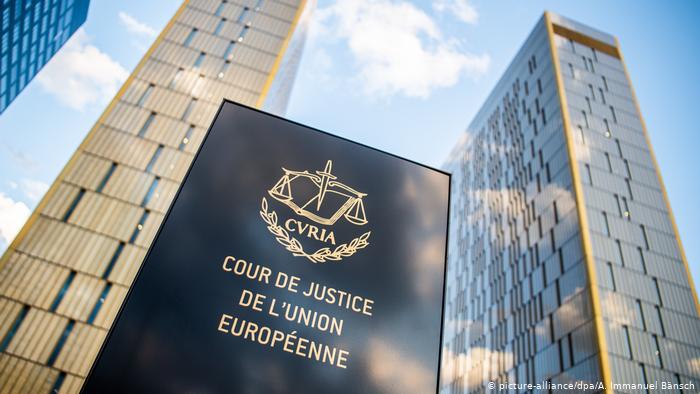The European Court of Justice has ruled that unaccompanied minors may only be sent back to their country of origin if there were "adequate reception facilities." Otherwise, the court said, they should be allowed to stay.
In a ruling on Thursday, the European Court of Justice (ECJ) in Luxembourg said member states should only be able to deport unaccompanied minors where they could ensure that relatives or an appropriate institution in the home country would receive the child.
The court ruled that such deportations — even if they did not take place until the minor reaches the age of 18 — did not sufficiently take into account the best interests of the child. As a result, the court ruled, the practice was not compatible with EU law.
"Such a minor would thus be placed in a situation of great uncertainty as to his or her legal status and his or her future," the Luxembourg judges said.
The court specifically rejected the Dutch practice of dealing with underage asylum-seekers and migrants who are not entitled to refugee protection.
For children under 15 years of age, suitable reception options in the country of origin are examined. Only if a suitable one is found will a "return decision" be issued.
However, for those over 15, Dutch authorities wait for the age of majority before returning minors to their origin country without inquiring where they will end up.
Young migrant's challenge to decision
A refugee aged 15 years and 4 months at the time filed a complaint against such a return decision. The boy said he had been born in Guinea but later lived in Sierra Leone with an aunt who had died. He then left for Europe.
The young man claimed to have been the victim of human trafficking and sexual exploitation, suffering serious psychological trauma as a result. However, Dutch officials decided he was not eligible for a fixed-term residence permit, refugee status or subsidiary protection.
His appeal was on the grounds that he did not know where his parents lived and would not be able to recognize them upon his return.
In their decision, the judges said, member states "must necessarily take into account the best interests of the child at all stages of the procedure, which entails a general and in-depth assessment of the situation of that minor being carried out."
The court ruled that deportation with no suitable reception facility would affect the individual's schooling and his connection with a foster family in the host country.
"It follows that, if such reception facilities are not available in the state of return, the minor concerned cannot be the subject of a return decision."
The court also ruled that EU countries should not distinguish between different groups of minors merely based on their age.
Latest Stories
-
Today’s front pages: Thursday, December 19, 2024
6 minutes -
ORAL: Not all corruption cases fall under the Special Prosecutor – Domelevo
27 minutes -
Two dead and 65 cases of malnutrition recorded in Bawku for 2024
41 minutes -
NDC’s control of major media houses gave them edge in 2024 polls, says Bawumia
45 minutes -
49th SWAG Awards: High jump Queen Rose Yeboah and Grace Mintah lead nominees for topmost award
59 minutes -
ORAL: ‘National Cathedral spending is an ‘expensive pit of deceit’ – Ablakwa
1 hour -
Our people didn’t vote – Bawumia explains why the NPP lost
1 hour -
Dr Bawumia had no choice given Mahama’s decisive victory – Malik Basintale
1 hour -
ORAL: ‘Clergy were misled by Akufo-Addo’ – Ablakwa on National Cathedral scandal
1 hour -
‘It is false’- PMMC refutes claims of politicians smuggling gold from Ghana
2 hours -
2 million NPP supporters did not turn up to vote – Kabiru Mahama
2 hours -
IPR Ghana congratulates citizens for peaceful election, calls for unity
2 hours -
Bawumia’s 8 minutes elite ball that zapped the energy of trigger happy politicians
3 hours -
It will be a betrayal if National Cathedral saga does not feature in ORAL’s work – Ablakwa
3 hours -
‘It’s unfortunate we had to protect the public purse from Akufo-Addo’ – Ablakwa on ORAL Team’s mission
4 hours

